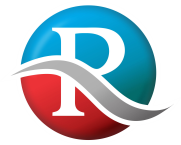
Exploring the RIASEC Model in the Kenyan Context: A Comprehensive Analysis
The RIASEC model, developed by John L. Holland, has been a foundational framework in the field of career development, guiding individuals toward careers that align with their interests and preferences. As we examine the RIASEC model in the Kenyan context, it is crucial to consider the cultural, educational, and economic landscape of Kenya and how these factors influence career choices and vocational development.
Cultural and Educational Context in Kenya:
Kenya, a diverse and culturally rich East African nation, boasts a mosaic of ethnicities, languages, and traditions. The cultural context plays a significant role in shaping individuals’ values, aspirations, and career choices. In a country where communal ties and familial expectations often influence decisions, understanding the interplay between cultural dynamics and the RIASEC model becomes imperative.
Kenya’s educational system, characterized by a mix of public and private institutions, has been evolving to meet the demands of a growing population seeking diverse career paths. The introduction of competency-based curriculum reforms reflects a shift toward a more holistic and practical approach to education, aligning with aspects of the RIASEC model that emphasize hands-on experiences and real-world applications.
Application of the RIASEC Model in Kenya:
- Realistic (R):
- In the Kenyan context, the Realistic personality type finds resonance in careers that involve practical, hands-on activities. With a strong emphasis on agriculture, carpentry, and technical skills, individuals with a Realistic inclination may find fulfillment in roles contributing to the nation’s economic development.
- Investigative (I):
- Kenya’s focus on technology, research, and innovation aligns with the Investigative personality type. Individuals interested in scientific fields, environmental conservation, or technological advancements may find suitable career paths within Kenya’s growing sectors in information technology, healthcare, and research institutions.
- Artistic (A):
- The Artistic personality type intersects with Kenya’s vibrant cultural landscape. Creative individuals may find opportunities in visual and performing arts, storytelling, or creative writing. Kenya’s rich artistic traditions, combined with a globalizing entertainment industry, offer diverse avenues for artistic expression.
- Social (S):
- In a society that places value on community and social cohesion, the Social personality type resonates strongly. Careers in counseling, community development, education, and healthcare align with Kenya’s societal needs and provide avenues for individuals to make a positive impact on their communities.
- Enterprising (E):
- Kenya’s entrepreneurial spirit and a growing private sector create a conducive environment for individuals with an Enterprising personality. Ambitious and assertive individuals may find opportunities in business, sales, marketing, and leadership roles within Kenya’s dynamic and expanding economy.
- Conventional (C):
- The Conventional personality type aligns with roles that demand organizational skills, attention to detail, and structured approaches. In Kenya, individuals with a Conventional inclination may find fulfillment in careers such as accounting, administration, or project management, contributing to the efficiency of various sectors.
Challenges and Considerations:
While the RIASEC model provides valuable insights into career preferences, its application in the Kenyan context is not without challenges:
- Societal Expectations:
- Kenyan societal expectations, often rooted in communal values, may influence individuals to choose careers that align with familial or societal expectations rather than personal interests. Striking a balance between tradition and individual aspirations is a complex dynamic.
- Access to Opportunities:
- Disparities in access to educational and career opportunities persist in Kenya. Rural-urban divides, economic disparities, and gender inequalities can impact an individual’s ability to pursue a career aligned with their RIASEC personality type.
- Globalization and Changing Dynamics:
- Kenya’s integration into the global economy and changing socio-economic dynamics introduce new career possibilities. While traditional career paths remain significant, emerging sectors influenced by globalization may not always align neatly with the RIASEC model.
- Educational System Alignment:
- The alignment between Kenya’s educational system and the RIASEC model is an ongoing process. Ensuring that the curriculum and career guidance services incorporate the principles of the model is crucial for helping students make informed decisions.
Success Stories and Role Models:
Despite challenges, Kenya boasts numerous success stories where individuals have navigated their careers in alignment with their RIASEC personality types. Entrepreneurs, artists, scientists, and community leaders serve as inspirational figures, illustrating the diverse pathways individuals can pursue within the Kenyan context.
Future Implications and Adaptations:
Looking ahead, the RIASEC model can play a pivotal role in guiding Kenya’s youth toward fulfilling and impactful careers. Adapting the model to the changing landscape, incorporating technology-driven opportunities, and addressing socio-economic disparities will be essential for its continued relevance.
Conclusion:
In conclusion, the RIASEC model, when viewed through the lens of the Kenyan context, provides a valuable framework for understanding and navigating career choices. Kenya’s unique cultural tapestry, coupled with evolving educational and economic landscapes, influences how individuals perceive and pursue their vocational paths. As Kenya
